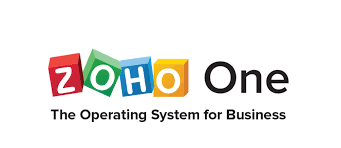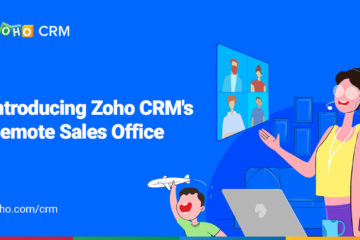MSMEs have been fighting debilitating lockdowns and economic failures since the commencement of the COVID-19 outbreak. Some have been able to rise above and overcome these challenges, thanks in part to the fast adoption of digital tools. Other MSMEs around the world are still battling, and digitalization is critical for this industry to prosper in the face of the pandemic’s negative consequences.
What drives the success of small firms?
According to the World Bank Group’s Enterprise Survey, MSMEs around the world have an appallingly low level of “basic digitalization.” Despite the fact that MSMEs account for 90% of global enterprises, digital transformation is still happening at a slower rate in this sector. Even if the internet has sped digitalization in many areas, it hasn’t been easy for MSMEs due to regional differences in small corporate culture.
The majority of small enterprises around the world fall into one of two categories: services or retail. Based on the nation of origin, these sectors are also driven by social and regional variables. Many people believe that primary business values and revenue are the primary motivators for all small business owners, however, this is an oversimplification.
So although small business owners must concentrate on the fact of the matter, trust, value, and culture are important. These (and other) characteristics vary by region, therefore keeping an open mind while considering how to digitally empower this sector is critical.
Small company entrepreneurs’ operations are shaped by the specific impact expertise and knowledge of local resources. Small firms around the world will be empowered by their capacity to perceive these inextricable relationships, particularly in impoverished market segments.
MSMEs are built on the backs of family businesses
According to a recent poll by the World Economic Forum, family firms account for almost 70% of global GDP. Because most of these family-run businesses are used to legacy systems, SaaS-based technologies have failed to gain traction.
Due to the hierarchical nature of most family-owned MSMEs, important management practices are commonly decided through one or a few prominent family members. Fixated with day-to-day business decisions and the fact that the majority of activities involve localised suppliers and consumers, digital transformation is seen as a risky investment for short-term gain.
Whereas the reasons for this differ, another prevalent trait among MSMEs in emerging economies is a reluctance or even fear of going digital. A digitisation is still an option in this blended workplace, thanks to the presence of more tech-savvy Millennial and Generation Z employees. MSMEs that promote technological diversification will have an easier time migrating from conventional to digital systems.
Free trials are no longer available.
Several software suppliers offer free trial periods for their products; however, software businesses must go over the free trial time in order for small business owners to understand and appreciated and test new technologies.
Due to a lack of improved digital competence, most small firms are used to operating independently and without reliance on outside specialists or contractors. As a result, the temporary disruption of integrating new technology generates a sudden need for others. Installation, domain registration, bandwidth selection, and even developing a web presence, which appears to be easy procedures, can drastically impede their normal work processes.
To promote digital transformation for small firms, software vendors must now look into support tactics such as free online training, tech empowerment programmes, and implementation projects that can help MSME’s see how technology can help them manage their specific difficulties.
Small modifications like these can assist small businesses to cope with difficult situations while also magnifying the software provider’s voice and fostering a much more technologically-advanced culture among small business owners.
Global solutions to local problems
MSMEs are being held back from participating in the digital economy for a variety of reasons, including inadequate ICT infrastructure. For many MSMEs, a lack of conceptual awareness of digitalization is a more significant concern.
In our active engagement with TANSTIA, a Tamil Nadu-based government organisation that assists smaller companies in the state, we at Zoho noticed the issues that many small businesses encounter.
The structure of their finances was a regular problem we encountered while onboarding small business leads. Because these companies relied on local tax advisers to balance their accounts and file their taxes, a low-cost, do-it-yourself cloud software solution like Zoho Books sounded untrustworthy and foreign to them.
MSMEs are empowered with Zoho One
Because most small business owners depend on and are likely to work through social media, we at Zoho decided to do our part to help them succeed. One of the ways we give back to the MSME community is through Zoho One’s #EmpowerSmallBiz initiative, which works to raise awareness of digital adoption for MSMEs.
One of the key lessons we learned from this endeavour is that MSMEs require flexible, tailored solutions that do not scare enterprises from transitioning from basic pieces to a virtualized operating system.
The absence of adaptation help, inadequate language-specific resources, and nonexistent financial aid are some of the main issues MSMEs face when it comes to digitization.
The upcoming adventure
Although MSMEs have some qualities in common across the globe, they often face problems specific to their location and culture. Building a culture of greater awareness of the digital ecosystem, understandably, involves different stakeholders from various institutions, all of whom must be aware of the current trends in order to continue to grow and survive.
To better engage and engage with MSMEs, software vendors must go beyond simply providing a free trial and engage in better ways to help these small firms expedite their growth online if it means going above and beyond. There is no quick fix for the problems that MSMEs encounter on a daily basis, but with more knowledge, confidence, and tolerance, entrepreneurs have a greater chance of weathering worldwide economic emergencies and other hurdles.


